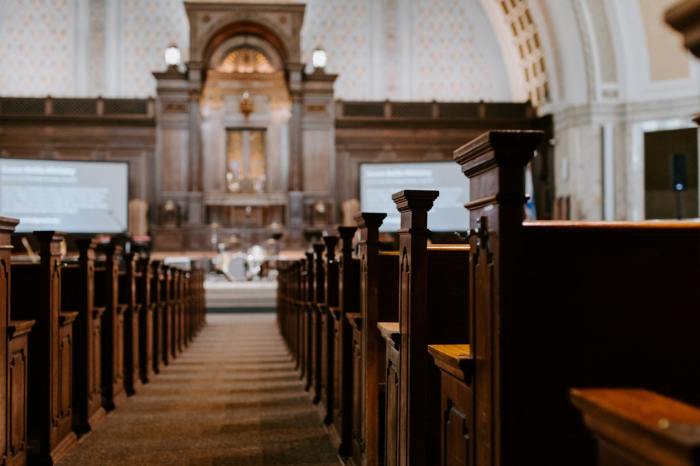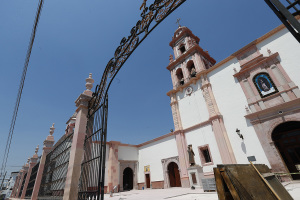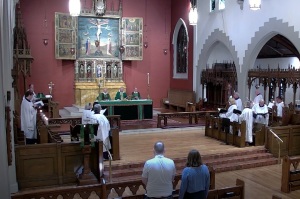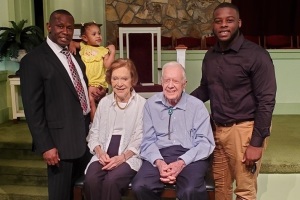Under 1% of Catholics agree with denomination's teaching on sanctity of life issues: report

Less than 1% of American Catholics agree with all three of the Catholic Church's teachings on the sanctity of life issues, showing the widespread existence of what some call "cafeteria Catholics" in the United States, according to an analysis.
Researcher Ryan Burge, an associate professor of political science at Eastern Illinois University who publishes articles on a Substack called "Graphs About Religion," shared data Thursday about the beliefs of Catholics in the U.S., focusing on their views on abortion, capital punishment and euthanasia.
Burge attributed the motivation to conduct the research to comments made by Cardinal Wilton Gregory of the Roman Catholic Archdiocese of Washington, who referred to President Joe Biden as a "cafeteria Catholic" during an appearance on CBS' "Face the Nation" on March 31.
Gregory defined a "cafeteria Catholic" as someone who "chooses that which is attractive and dismisses that which is challenging." Referring to Biden, Gregory stated, "Like a number of Catholics, he picks and chooses dimensions of the faith to highlight while ignoring or even contradicting other parts." In other words, a "cafeteria Catholic" picks and chooses which parts of the faith to abide by, much like someone selecting food in a cafeteria rather than accepting all the teachings of the faith.
When investigating the phenomenon of "cafeteria Catholics," Burge discovered that "it's not just many Catholics who disagree with the teachings of the church."
"[I]n fact, if you look at the data, it's nearly all of them," he wrote.
Using data from the General Social Survey dating back to 1988, he measured the percentage of U.S. Catholics who said they did not support abortion for any reason and also opposed the death penalty and euthanasia at 0.9% in 2022.
The share of U.S. Catholics who aligned with church teaching on all three matters reached a high of about 7% in 1989 while fluctuating between 2.6% and 6.2% in the years since. The 0.9% of U.S. Catholics whose positions on the three issues matched those of the church in 2022 constituted an all-time low.
After noting the Catholic Church's teaching that "Direct abortion, that is to say, abortion willed either as an ends or a means, is gravely contrary to the moral law," Burge presented six graphs documenting U.S. Catholics' positions on abortion over time based on data found in the General Social Survey collected between 1972 and 2022.
Three of the six graphs showed that until recently, most U.S. Catholics opposed legal abortion if a woman "wants no more kids," "is not married" or "can't afford more." However, in all three of those cases, support for legal abortion is at about 50%, according to the most recent data.
"From the 1970s through the 1990s, the share of Catholics who would allow an abortion [if a woman doesn't want more kids] was right around 40%. Now, about half of Catholics would support an abortion in that circumstance," Burge stated. "The trend line is largely the same when Catholics are asked about electing an abortion in a situation where the woman is not married. Now, about half of Catholics would support the right of a woman to obtain a legal abortion in that case."
On the other hand, the overwhelming majority of Catholics have consistently supported legal abortion in cases where the "mother's health" is at risk, the baby was conceived as a result of rape and the baby was determined to have a "serious defect."
The most recent statistics show support for abortions in those cases hovering at around 90%, 80% and 75%, respectively. Support for legal abortion in cases where the mother's health was in danger has never dropped below 80%, while the percentage of Catholics who favored legal abortion in the other two cases has never dipped below 70%.
"[I]f you look at the stated opinion of rank and file Catholics on abortion, there's clear majority support for elective abortion in almost every circumstance," Burge wrote. "For instance, at least three quarters of Roman Catholics favor a woman's right to obtain an abortion if she became pregnant due to a sexual assault. Nearly the same share are supportive of abortion if the child has a serious birth defect."
Burge shared a statement from the U.S. Conference of Catholic Bishops illustrating the Catholic Church's opposition to the death penalty, highlighting their declaration that "no matter how heinous the crime, if society can protect itself without ending a human life, it should do so." He presented a graph showing consistent majority support for the death penalty among U.S. Catholics from 1974-2022, ranging from a low of 55% in 2021 to a high of 81% in 1990, with the most recent data measuring Catholic support for the death penalty at 61%.
When looking at data about U.S. Catholics' support for euthanasia, also known as assisted suicide, Burge found that about 70% of American Catholics supported helping or letting people commit suicide in cases of incurable disease in 2022. This represented a stark increase from the 36% who expressed support for euthanasia when the question was first asked in 1977.
The Catholic Church teaches that because "direct euthanasia consists in putting an end to the lives of handicapped, sick, or dying persons," it is "morally unacceptable."
Burge noted that Catholics are not the only religious demographic that doesn't adhere to the teachings of their churches. He pointed to a poll conducted by Ligonier Ministries and Lifeway Research that asks specific doctrinal questions.
Among Evangelicals who participated in the survey, about a quarter (26%) said they don't believe the Bible is literally true. Meanwhile, more than half (56%) said that "God accepts the worship of all religions, including Christianity, Judaism, and Islam," and 43% said that "Jesus was a great teacher, but he was not God."
Research from the Cultural Research Center at Arizona Christian University's American Worldview Inventory 2024 finds that only 6% of professed Christians in the United States hold a biblical worldview.
"[T]he typical American adult is not a worldview purist but is essentially a worldview plagiarist, combining beliefs and behaviors borrowed from an average of nine recognized worldviews into their personal worldview blend," the report stated.
Ryan Foley is a reporter for The Christian Post. He can be reached at: ryan.foley@christianpost.com




























